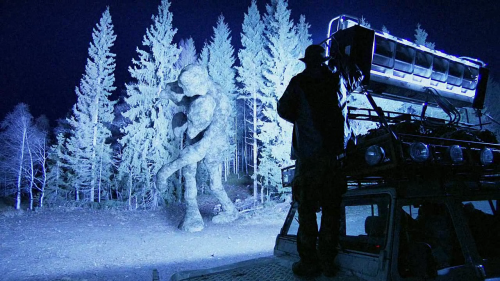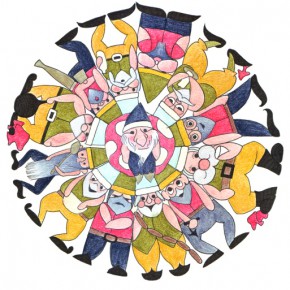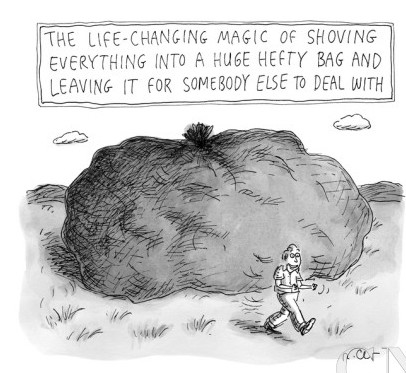
Buried in a recent installment of Another Week Ends, CJ mentioned the book by sociologist Rodney Stark, The Triumph of Faith: Why the World Is More Religious than Ever. The subtitle pretty much says it all. The Wall Street Journal, in its review, summarized Stark’s principal finding this way:
Huldufolk
For the champions of the secularization thesis [i.e. that the planet is growing steadily less religious]…, Empty churches [in Europe] are a sign of reason’s progress. Mr. Stark offers some amusing evidence to the contrary. Drawing on the Gallup poll, he notes that Europeans hold all sorts of supernatural beliefs. In Austria, 28% of respondents say they believe in fortune tellers; 32% believe in astrology; and 33% believe in lucky charms. “More than 20 percent of Swedes believe in reincarnation,” Mr. Stark writes; “half believe in mental telepathy.” More than half of Icelanders believe in huldufolk, hidden people like elves and trolls. It seems as if the former colonial outposts for European missionaries are now becoming more religious, while Europe itself is becoming interested in primitive folk beliefs.
Waning church attendance in the developed world is not a reliable indicator of religiosity, in other words; if you expand your definition of “religion” ever so slightly to include non-institutional expressions of faith, the numbers tell a very different story. It’s not just that everyone worships–though we all do–we share a need to believe in something beyond reason. This is particularly pronounced during an election cycle, with all the messianic language it brings. (Overstated as it may be, I’ve always loved Joss Whedon’s formulation: “Faith in God is believing absolutely in something with no proof whatsoever. Faith in humanity means believing absolutely in something with a huge amount of proof to the contrary.”).
Anyway, if Stark is right, scientific and technological advancement has not displaced our religious impulses so much as redirected them. Despite the boxes we may check on the latest survey, or the sophistication we may exude, no one actually buys the idea that reality can be sorted into 100% explainable categories. There’s simply too much mystery and ineffability in how we experience the world and ourselves. Alas, the only thing that abhors a vacuum more than nature is the human heart, so if conventional expressions of faith are perceived as off limits, well, then telepathy and trolls may just be the beginning (no disrespect to my fellow Trollhunter lovers).

One wonders if the objects of secular religiosity grow more far-fetched (though no less instinctively Pelagian) to the degree that faith and reason are set up as opposites or even enemies.[1] The stricter that divide is enforced, the wider and more bizarre it becomes. Meaning, to make sense of life as it is lived you have to split experience into two distinct spheres, material and immaterial, each governed by its own laws, so divorced from one another that reconciliation seems beside the point (if not totally irrelevant). Unhampered by concerns about objectivity, belief is free to spiral into fancy.
That’s all an elaborate preamble to Heather Havrilesky’s review of personal organization guru Marie Kondo’s new book, Spark Joy: An Illustrated Master Class on the Art of Organizing and Tidying Up. Where some see good advice about sock-care, Havrilesky sees a secular religion, with Kondo set up as “our brand-new tidying messiah”. Havrilesky goes on to deconstruct the whole enterprise as only she can, emphasizing the near-maniacal levels of personal control being leveraged in the “movement”. Yet she does so without denying the truths about consumerist excess underneath.
The whole thing is worth reading if you have the time, but given how, er, cluttered all our reading lists and inboxes are these days, I’ve pared it down to the essentials:
Clearly one’s best life can only be lived against a backdrop as pristine and empty as an art gallery. From Pinterest to Instagram to the pages of Real Simple and Dwell, the same message rings loud and clear: Owning too much stuff is tantamount to actively choosing unhappiness…
Kondo’s central, underlying message — her haunting subtext and the primary reason for her massive popularity — is that most of the stuff we own is not only pointless and deeply unnecessary and horribly burdensome in every single way, but it holds us back from growing into fully empowered, happy, satisfied people. Our extra stuff is not a sign of our prosperity; it’s a sign of our impoverishment.
The unnerving irony of Spark Joy (and the journal, and maybe the third book and the fourth book and the many, many more books to come) is that these new Kondo products feel like exactly the sort of redundant, unnecessary items that Kondo herself would urge her clients to throw out…
Advanced-level Kondo — in close-up, in detail — means even more exquisite madness than ever before. Within the first few pages of her new book, the author has referred to tidying up as a “once-in-a-lifetime special event” and has hinted faintly at a “god of tidying up” who is “always on your side as long as you are committed to getting it done.”
The poetic, minimalist subtext that turned Marie Kondo into something akin to a globally recognized religious figure, the Dalai Lama of soothing, hygienic empowerment, is that we don’t need more. More, in fact, is a sickness. Kondo’s message is, and always has been, that we should work with what we have instead…
My wife and I did the whole Kondo thing, btw, last spring. (We’re not exactly neat-niks). Twelve industrial-sized trash bags later, we had a lot less superfluous paper and plastic toys lying around. While I doubt any of our babysitters would say it “took”–sigh–it definitely helped. In the same way that trading in my smartphone for a flip phone helped. I could breath easier.
What it didn’t do was heal. Not because Kondo was wrong about anything. She may go overboard in the zeal department, but her diagnosis of materialism holds water. Her methods are smart, and her animism oddly empowering. I’d say we can safely add her little-l laws to the list of those that promote sanity rather than cruelty. It doesn’t mean they aren’t subject to the same impotence or don’t appeal to the same illusions about self-mastery. Just that as secular religions go, this one is pretty harmless, Christ’s words about white-washed tombs notwithstanding.
But then you turn to this Sunday’s lectionary reading, in which Jesus turns water into wine (John 2:1-11), and you’re struck by the utter lack of restraint. The God of the Bible, it turns out, is quite different from the god of tidying up. He doesn’t scold the bad planners–wedding or otherwise–nor does he turn away from what was an undoubtably messy situation, getting messier by the minute. Against all conventional wisdom, instead of reigning in the revelry (and chaos), he increases it. One wonders if those in attendance were too inebriated to notice that their joy wasn’t being extinguished. It had just been sparked.
Cue Jim Carrey, presiding over a different sort of drunken event:
[1] David Bowie himself felt like he had to address the (false) dichotomy as early as 1976, when he sang “Just because I believe don’t mean I don’t think as well”.

COMMENTS
Leave a Reply














